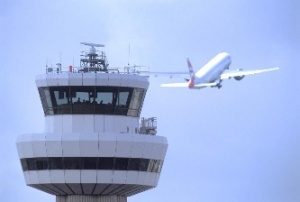Christmas flooding should act as ‘wake-up call’ to UK airports

Disrupting over the Christmas period should act as a “wake-up call” to all UK airports the House of Commons Transport Committee has said in a report on the incident.
Some 72 of the 260 flights due to leave Gatwick on Christmas Eve were cancelled after the basement of the North Terminal at the airport flooded, affecting over 11,000 passengers.
The report highlighted a lack of facilities, such as toilets and drinking water, and a lack of clarity about who was in charge as particular causes for concern.
There was also often inconsistent and poor provision of information about what was happening provided to stranded passengers, the report added.
“The problems at Gatwick at Christmas Eve should be a wake-up call for airports across the UK to get on top of operational resilience issues.
“Disruption of whatever nature should be met with well-drilled plans, familiar to airport operators, airlines, and other contractors, which put passenger interests first,” argued the report.
Gatwick itself commissioned a review of the problems which occurred on Christmas Eve which recommended that the airport should appoint passenger champions at each of its terminals, to focus on passenger welfare.
“We welcome this and would like to see this proposal implemented more widely,” state the committee.
“However, airlines are formally responsible for passenger welfare: there must be operational agreements between airlines and airports about when airports should step in and how costs should be allocated. We recommend that Government review this issue.”
Gatwick said it accepted the findings of the committee.
A statement read: “Following the events of Christmas Eve, Gatwick set aside a £30 million resilience fund and immediately began projects to strengthen flood defences.
“In partnership with its airlines, extensive work has already been undertaken to improve contingency plans and passenger welfare in times of disruption.”

